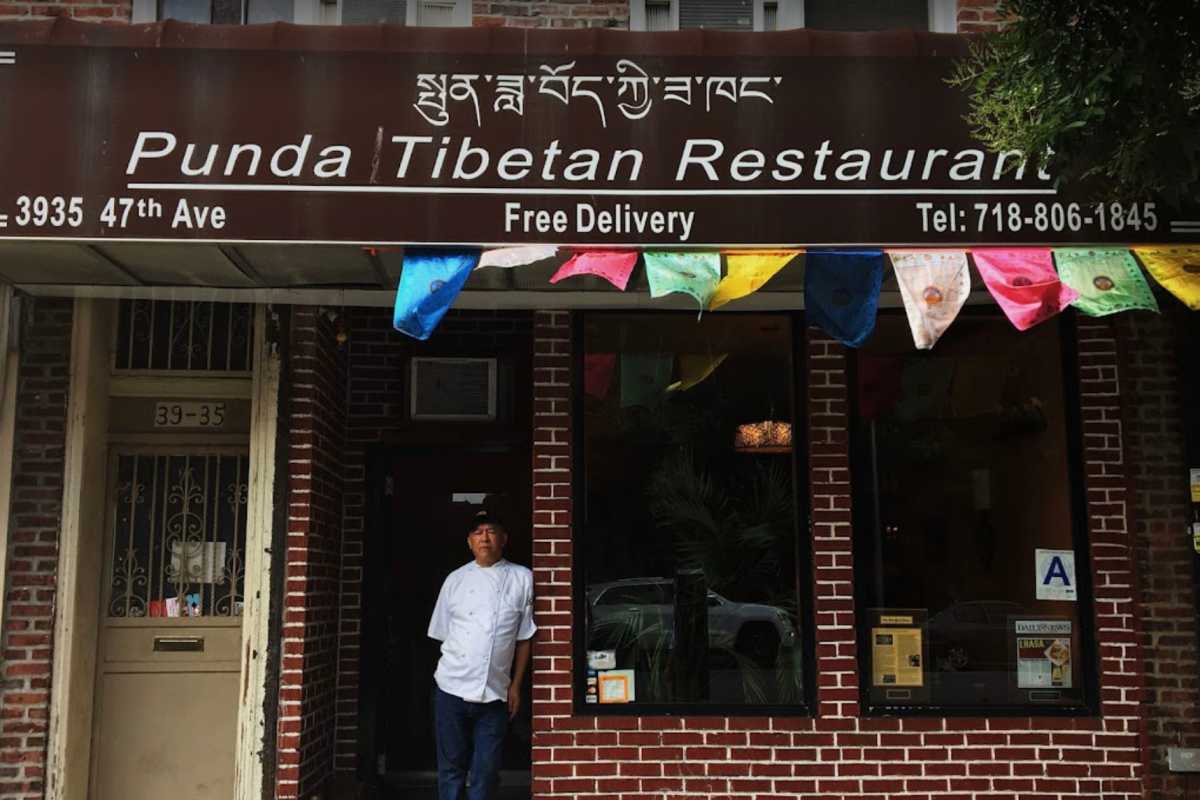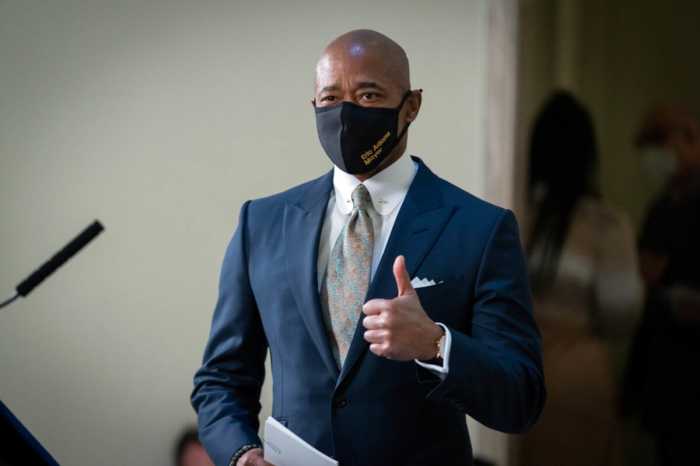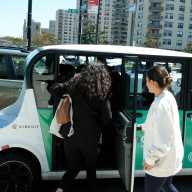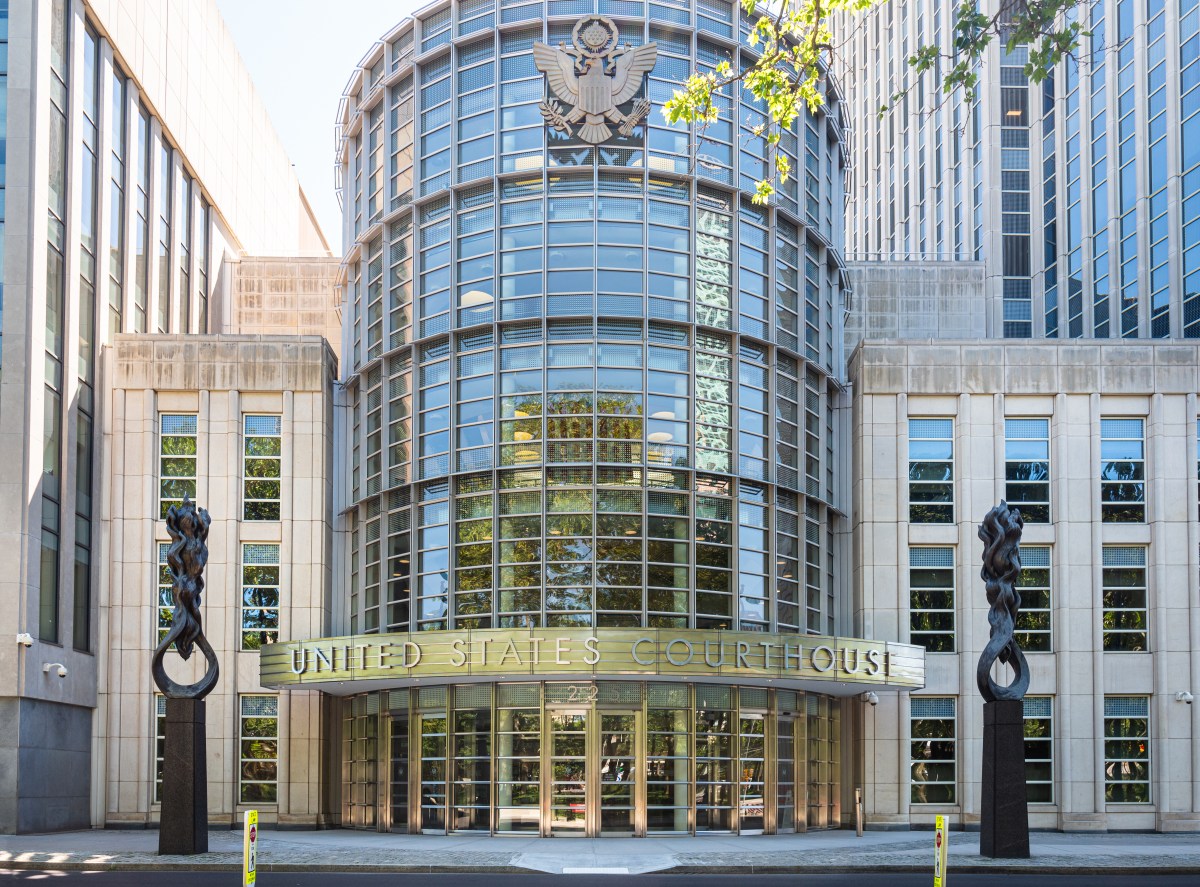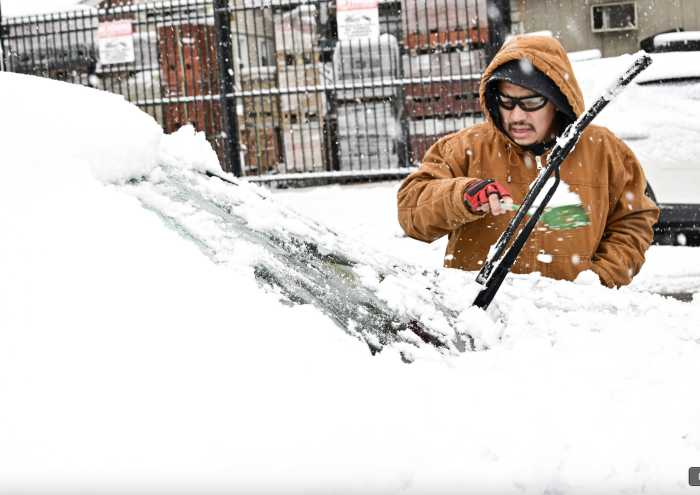When Punda Tibetan Restaurant in Sunnyside opened in 2015, business was doing extremely well, according to owner Tenzing Tsering. He said he was given awards from elected officials, mentioned in local newspapers and even had a feature come out in The New York Times. The Times story described Tsering’s traditional Tibetan menu items with great detail, making any reader’s mouth water. It’s fair to say Punda Tibetan Restaurant received rave reviews from food writers and locals alike.
Now, after the COVID-19 pandemic turned the hospitality industry upside down, Punda Tibetan Restaurant has lost about 75% of its business. A once busy, successful restaurant now struggles to pay rent and faces the risk of closure.
“I used to have around six employees. Now I don’t have any workers because I can’t pay them,” Tsering said. “Everything went down. I was broken.”
Luckily, Tsering had saved money helping him scrape by as he was forced to close his business for a few months when the pandemic first hit in March of 2020. He also relied heavily on delivery orders during late 2020 and 2021.
“The most difficult thing is the house rent,” Tsering said. “I told my house owner that we had to close the business. But the house owner kept saying, ‘You have to pay.’ I’m very scared. I hope it won’t take very long to get back to operation.”
According to the Office of the New York State Comptroller, the New York City restaurant sector lost 169,700 jobs by 2021, accounting for 41% of total private-sector jobs lost since 2019.
Tsering has fought tooth and nail to remain open in Sunnyside. However, he said recent vaccine mandates have made it nearly impossible for his business to get back to where it was pre-pandemic.
“People don’t want to show vaccine cards,” Tsering said. “If we don’t allow them to dine in, we lose all business. But then if we do, we get fined by the city. We are sandwiched between the guests and the government.”
Beny Castro, a counselor at the Queens Economic Development Corporation (QEDC), agreed with Tsering, affirming that every business he has worked with has taken a huge hit due to the city’s regulations.
“Many people do not want to get vaccinated or feel they don’t want to show their vaccine cards. This has just been a massive blow to small businesses and thoroughly impacted them overall,” Castro said.
Luckily for Tsering, the vaccine and mask mandates will be lifted on March 7. New York City became the first U.S. city to require proof of at least one dose of a COVID-19 vaccine for indoor dining and other activities back in August of 2021.
Former Mayor Bill de Blasio required vaccines in an attempt to stop the spread of COVID and incentivize immunizations. Before proof of vaccines was required, about 66% of adults in the city were fully vaccinated. Now, 86.8% of adults are fully vaccinated, according to city data.
Tsering hopes that once these mandates are lifted, he will start to regain customers. If not, he will be forced to close his business by the end of this year.
“It would make a huge difference for me and for everyone,” Tsering said. “But if we aren’t able to pay rent or bills, we’ll have to leave within this year. It’s very difficult.”
As a counselor for QEDC, Castro works to help local businesses regain lost income due to the pandemic through marketing techniques, obtaining grant money and more. Castro said that it breaks his heart to see small businesses across Queens struggle so much.
“I’m very close to a lot of business owners in different industries but specifically the restaurant owners — to see what they have had to go through, it’s very sad. It’s very, very tough,” Castro said. “I cannot count the number of businesses I’ve seen closed.”
Wen Liu from Flushing owns UpperTrans, an education business that teaches children and adults English and Mandarin. Liu said she lost 99% of her clients once the pandemic reached New York in 2020.
Before the pandemic, she would work with a community center in Brooklyn, teaching nearly 80 students. Now Liu only has one or two students she works with remotely.
“Before the pandemic, I didn’t have any problem buying food or enjoying shopping sometimes,” Liu said. “I felt much better walking on the street and never thought about being attacked in the subway station. But after the pandemic, it’s just so scary. Financially, it’s a big loss. I have almost no income. And I also don’t go out because of safety reasons.”
Liu referenced the slew of Asian-hate crimes that have swept across the city. Just recently, an Asian woman attacked in Corona back in November died after spending weeks in a medically induced coma. Liu even said she feels that the onslaught of racism amid the pandemic affected her business as well.
“I have an education degree, a master’s degree, but now I have no students,” Liu said. “I lost a lot.”
As COVID-19 cases have trended downward, Mayor Eric Adams stood by his decision to lift vaccine and mask mandates. He predicts there will be a large opportunity for growth for small businesses across the city as regulations are lifted.
“I want to thank the millions of New Yorkers who have gotten vaccinated to help stop the spread,” Adams said. “New York City’s numbers continue to go down day after day, so, as long as COVID indicators show a low level of risk and we see no surprises this week, on Monday, March 7, we will also lift Key2NYC requirements. This will give business owners the time to adapt and will allow us to ensure we are making the best public health decisions for the people of New York.”

